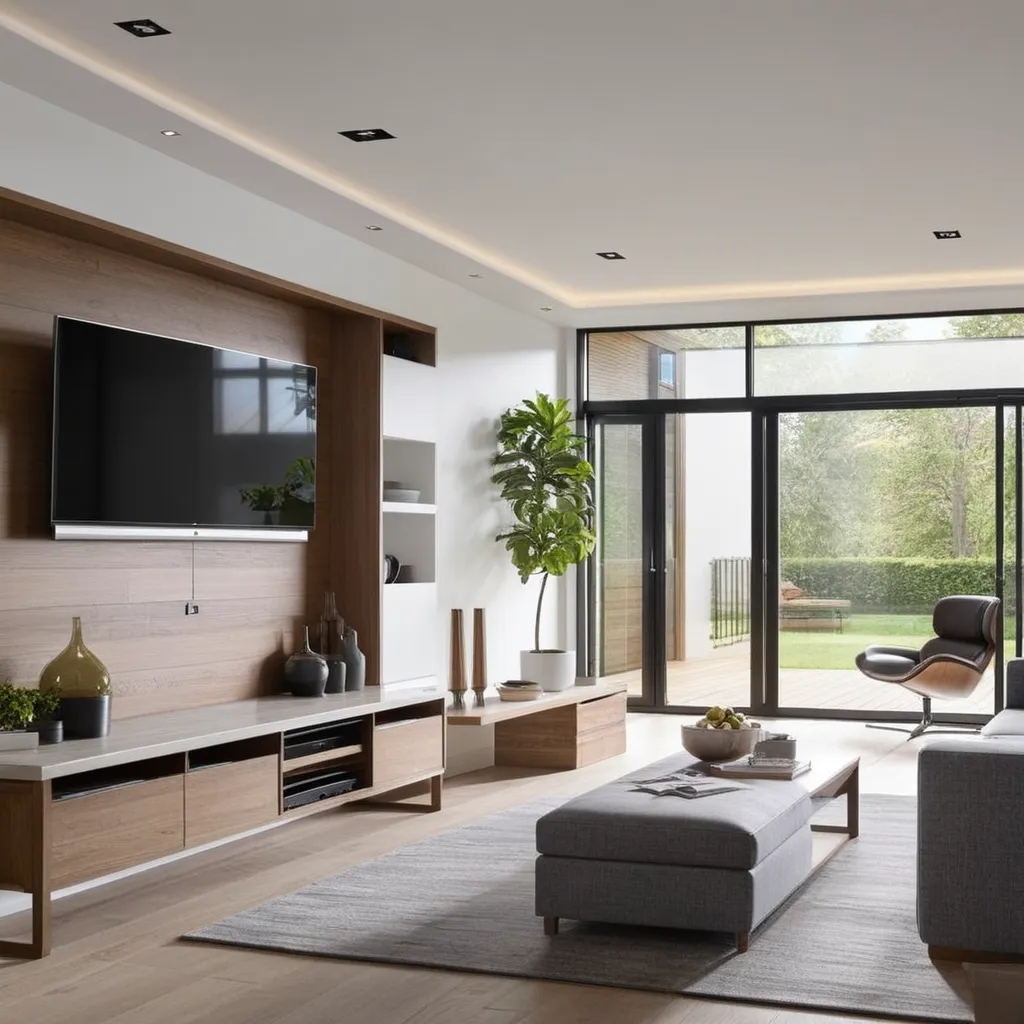The Rise of Smart Home Technology: Comfort Meets Innovation
Welcome to the future of home living. Picture this: you walk into your house, and the lights automatically brighten to your preferred level. Your favorite music starts playing softly in the background. As you settle in on the couch, the thermostat adjusts to the perfect temperature. It's not a scene from a sci-fi movie; it's just another day in the world of smart home technology.

The Smart Home Revolution
1. A Personal Journey into Smart Home Tech
I remember my initial skepticism when I first dipped my toes into the world of smart home gadgets. It all began when I received a smart speaker as a gift. Soon, I found myself adding more devices to my collection – smart bulbs, locks, thermostats, and even a robot vacuum.
2. Convenience Redefined
One of the key driving forces behind the rise of smart home technology is convenience. Imagine being able to control nearly every aspect of your home with a simple voice command or a tap on your smartphone. It's not just about laziness; it's about reclaiming time and simplifying our daily routines.
3. Energy Efficiency
With the growing awareness of environmental issues, energy efficiency has become a significant concern. Smart thermostats, for example, learn your heating and cooling preferences and adjust accordingly. This not only saves you money but also reduces your carbon footprint.
4. Security and Peace of Mind
Enhanced security is another aspect of smart homes that appealed to me personally. Smart doorbells with built-in cameras allow you to see who's at your doorstep even when you're not home. And smart locks provide an extra layer of security, allowing you to remotely grant access to trusted individuals.
5. Health and Well-Being
Smart home technology is also making its way into healthcare. Devices like smart scales, blood pressure monitors, and sleep trackers provide valuable health data, enabling individuals to proactively manage their well-being.
The Science Behind Smart Homes
1. Internet of Things (IoT)
At the heart of smart home technology is the internet of Things (IoT). This refers to the interconnectedness of everyday objects via the internet. IoT devices collect data, communicate with each other, and respond to your commands. For instance, your smart fridge can create a grocery list for you, and your smart lights can sync with your alarm clock to mimic a natural sunrise.
2. Artificial Intelligence (AI)
AI plays a pivotal role in making smart homes, well, smart. Machine learning algorithms analyze data from various sensors and devices to anticipate your needs. Over time, your smart home adapts to your preferences, making it truly personalized.
3. Voice Recognition
Voice recognition technology has come a long way. Thanks to advancements like natural language processing (NLP), virtual assistants like Alexa and Google Assistant can understand and respond to your voice commands accurately.
The Future of Smart Homes
The world of smart home technology is ever-evolving. Here's a glimpse of what the future might hold:
1. Increased Integration
In the future, smart home devices will seamlessly integrate with one another. Your fridge might communicate with your grocery delivery service to restock items automatically, while your car syncs with your home to prepare your garage for your arrival.
2. Enhanced Security
With concerns about data privacy on the rise, expect to see more robust security features in smart home devices. Multi-factor authentication and encrypted communication will become the norm.
3. Elderly Care
As the global population ages, smart home technology will play a significant role in elderly care. Sensors and AI will monitor the well-being of seniors, allowing them to maintain their independence while providing peace of mind to their loved ones.
4. Environmental Impact
Smart homes will continue to prioritize sustainability. Solar panels, energy-efficient appliances, and water-saving devices will be commonplace, helping homeowners reduce their environmental footprint.
The Bottom Line
Smart home technology has transformed the way we live, offering convenience, security, and energy efficiency. It's not just about gadgets; it's about creating a personalized, efficient, and interconnected living space. Whether you're a tech enthusiast or a skeptic like I once was, there's no denying the impact smart home technology has on our daily lives.
So, as you settle into your smart home, dim the lights, and play your favorite music with a simple voice command, you'll understand why comfort meets innovation in the exciting world of smart home technology.

No comments:
Post a Comment